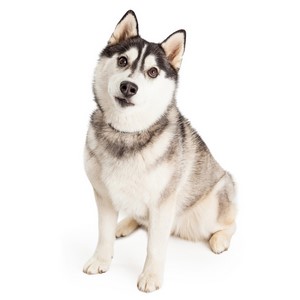General Health Issues in Siberian Husky
A huge part of a pet dog’s general health and wellbeing is their health. Regrettably, some breeds are more likely to struggle with particular conditions than others. These breeds are: Pugs, Bulldogs, Beagles, Boxers
However, they’re not the only ones. Prior to picking to adopt or purchase among these breeds you need to know about the prospective health problems they can be born with. Illness can begin impacting canines while they’re pups, teen dogs or adult dogs.
If you own one of these breeds (consisting of the ones we’ll discuss below) it is essential to be familiar with health problems that could affect your pet. Any changes in behaviour or physical appearance should be discussed with your veterinarian.
Tests can eliminate or confirm concerns and if necessary, your vet ought to suggest a plan to manage the symptoms and reduce problems.
Bloating in Dogs
Dog breeds which are most likely to struggle with bloating: Normally, larger breeds such as Terrific Danes and Saint Bernards.
What happens when a pet suffers from bloating: When the stomach twists and traps gas within, the dog’s internal organs can suffocate. It’s stomach swell with liquid and gasses as the reaction is caused by the shape of it’s chest.
How to help prevent and handle bloating in pets: If you took place to own a giant or large canine breed, it will help to put it’s food in a raised bowl or use a raised feeder. Also it is recommended you inspect your pet’s stomach, often. If it seems inflamed or tight a cautious assessment of your pet can be carried out by your regional veterinarian.
Hip or Elbow Dysplasia in Dogs
Dog breeds which are more likely to suffer from hip or elbow dysplasia: Larger dog breeds such as Golden and Labrador Retrievers, German Shepherds.
What happens when your pet dog suffer from hip or elbow dysplasia: The abnormal formation of the hip socket in your canine triggers major pain in your family pet will lead to hip dysplasia. As a result of hip dysplasia, your canine can struggle with lameness, arthritis and loss of movement. Elbow dysplasia, which can, likewise, trigger lameness, takes place in the joints of the front legs.
How to assist prevent and manage hip dysplasia in pets: One of the major factor for hip dysplasia in canines is overfeeding and the other one is lack of routine exercise for your pet.
How to help prevent and manage elbow dysplasia in canines: Medication and surgery are the two options to deal with elbow dysplasia.
Arthritis and Joint Pain in Dogs
Arthritis and joint issues in pets are not specific in any dog breeds. When dogs get older it is extremely common for them to experience arthritis and joint problems. Fortunately is, arthritis and joint problems are usually treatable. Joint problems in pets, manifesting as lameness, can also occur earlier, specifically in bigger breeds.
How to assist your dog with arthritis and joint discomfort: Routine workout, weight management and pain medication can all assist handle the condition and minimize the pain.
Common Eye Diseases in Dogs
Pet breeds that experience glaucoma and cataracts early in life are: Beagles, Chow Chows and Poodles. A lot of other pet dog breeds will struggle with glaucoma and cataracts later on in life as it becomes part of aging.
Progressive Retinal Atrophy (PRA) also referred to as Progressive Rod and Cone Degeneration (PRCD) in Pet Breeds: This group of eye illness in pet dogs can begin impacting at an early age, which can ultimately result in blindness in both eyes.
Common Heart Diseases in Dogs
In general, cardiovascular disease in canines are not specific to specific breeds or pet dog sizes. Routine medication is frequently required to deal with the issue. In some cases, workout must be kept to a minimum.
Heart disease (CHF) in canines can be triggered by dilated cardiomyopathy (DCM), mitral valve disease (MVD) and atrioventricular valvular deficiency (AVVI).
- Pet dog Breeds that are generally experience Atrioventricular Valvular Deficiency (AVVI) in Canines: Extremely typical in little to medium sized pet breeds such as Cavalier King Charles Spaniels, Mini and Toy Poodles, Schnauzers, Chihuahuas and Yorkshire Terriers.
- Dog Breeds that are most commonly suffer from Dilated Cardiomyopathy (DCM): Doberman Pinschers, Great Danes, Boxers and Cocker Spaniels.
- Canine Breeds that are typically impacted by Mitral Valve Illness (MVD): More typical in smaller breeds e.g. Poodles, Yorkshire Terriers, Pugs and Pomeranians.










